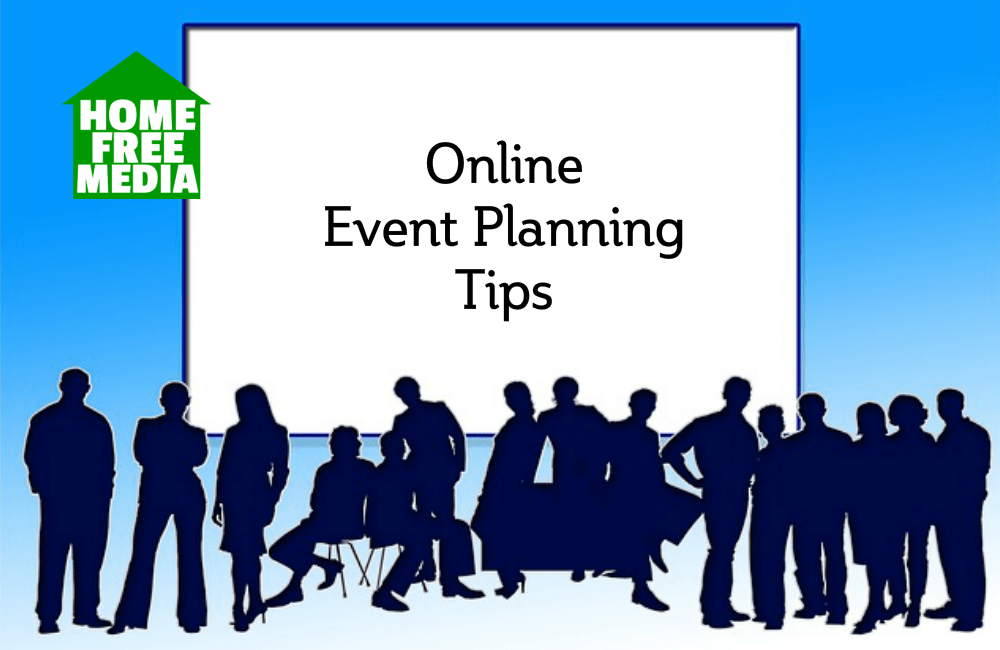
Online Event Planning Tips
Having online events is another type of content. Think of everything that goes into planning an online event and you realize it’s all about content. First, you need something to promote, then you need to create the program, and, guess what; if you record the event, you’ve got – that’s right – more content.
Thinking outside the blog for a moment, you soon realize that there is so much content that you can create that you may not have considered previously was content. But, now that you know that online events are content, how do you go about planning one?
Decide the Topic
First you need to pick a topic that you want to present to your audience. The topic should allow you to promote a product or service, but be educational all by itself without anyone having to buy an additional product.
Choose What to Promote
The service or product that you promote should be related to the topic in some way, directly or indirectly. You don’t need to promote the product like the entire event is an advertisement. Instead, you want to encourage viewers in follow up to check out the products or services.
Choose the Technology
This is a very important part of giving an online event. What technology you choose will determine a lot of things, such as how many people can come to the event. It will also determine how and whether or not you want to charge for the event. Some technology makes it simple to charge, and some doesn’t. Make a list of the types of features you want in your event technology before looking.
Create an Agenda
You want to create an agenda about your event before you invite guest speakers. You want a good outline (which can be updated later) about the topic, the audience you’ll be marketing to, and what types of presentations you need for your event to be successful. Use this agenda to attract the right speakers.
Invite Guest Speakers
If you already have in mind some guest speakers, send them your agenda, and a personal invite to be a guest speaker. If you’re not going to pay people for speaking, be sure to allow them to promote their products and/or services. However, be clear about not having overt advertising. Ads can be in the program, and newsletters and other venues, but not during the actual event.
Set Expectations and Deadlines
Give everyone involved your expectations and deadlines. For instance if you need ten blog posts to promote the event, when do you need them to be finished, what dates do you want them uploaded, and when will they go live? If you have speakers, when do you want to see their outline of what they’ll talk about, and how long can they speak for? Be very clear about every aspect of the event.
Develop the Content
Each item on this list won’t be done in a specific order; some will be done concurrently with other aspects. It’s important to develop all the content you need for your event such as marketing materials, presentations, advertising, blogs, articles, infographics and more.
Practice Delivering the Content
As they say, practice makes perfect. Once you and your guests have finished creating all the content, it’s time to practice hosting the event. You can invite a few people to view the event practice and give feedback so that when you go live for the real event there is less of a chance of something going wrong.
Promote the Event
No event will ever be seen without promotion. Much of the content you created is about promoting the event via social media, blog posts, newsletters, and even offline press releases. Every participant should be promoting as well. You can also get affiliates on board. Even if you’re not charging for the event, consider paying for leads.
Evaluate the Event
Once you’ve given the event, it’s time to evaluate how it went. You can do this in a number of ways – from surveying the participants, to surveying your guest speakers. You can also check the numbers and see how the event affected sales, newsletter subscriptions and more.
Repurpose the Event
If you’ve recorded the event, and of course you should, let all your speakers have copies for their own purposes. Then, use your copy to repurpose the content for other means. You can separate each speaker’s presentation and add them to a membership site; you can transcribe it and make it an eBook, a report, and even multiple blog posts.
Finally, you want to repeat your events. As you do more of them, you’ll get better at them as you improve based on the feedback. Each time you have a new product to promote or a new service, consider having an online event as another form of content marketing.

